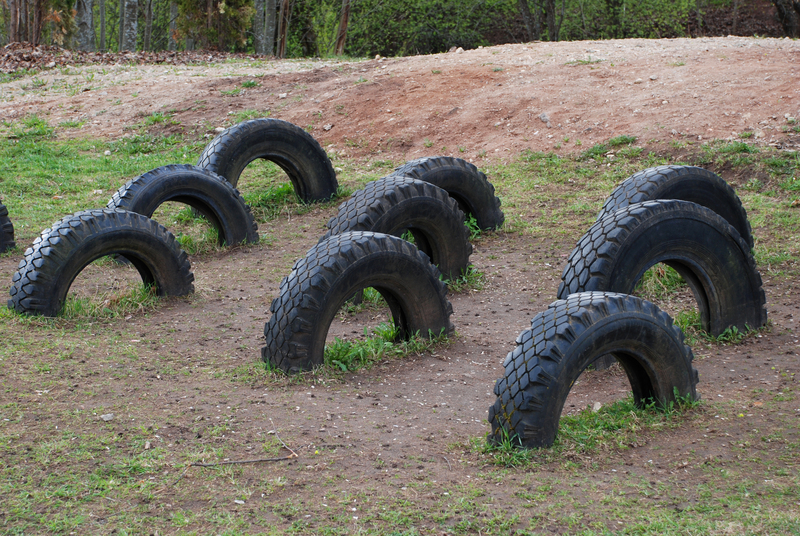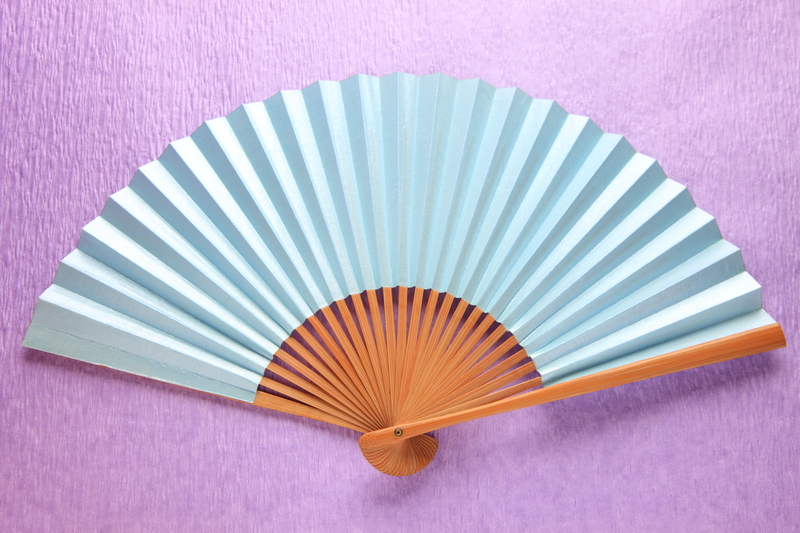Making the Most of Old Cookware Through Responsible Recycling
Are you left with a pile of battered pans, warped baking trays, or non-stick pots that have lost their luster? Disposing of old cookware is not just a matter of decluttering; it's an opportunity to practice responsible recycling and minimize environmental impact. This comprehensive guide will help you understand the best ways to manage, recycle, and upcycle your old kitchenware, ensuring you're contributing positively to both your home and the planet.
Why Recycling Old Cookware Matters
In a world driven by sustainability, recycling old cookware has become an essential practice. Not only does it reduce landfill waste, but it also allows for valuable metals and materials to be repurposed. Here's why you should care:
- Environmental Impact: Inappropriately discarded cookware can leach chemicals and metals into the soil and waterways.
- Resource Efficiency: Recycling recovers materials like aluminum, steel, copper, and iron, reducing mining and manufacturing needs.
- Economic Value: Salvaged metals can be reprocessed, saving energy and money compared to producing virgin materials.
- Decluttering: Responsible cookware disposal makes space for new, safer non-stick and energy-efficient sets.

Types of Cookware You Can Recycle
Not all kitchenware is created equal. Understanding what you can (and can't) recycle is the first step toward responsible disposal. Here are common types:
- Cast Iron Pans: Extremely durable and entirely recyclable, often favored by scrap metal centers.
- Stainless Steel: Used in many cookware pieces; easily recyclable due to its high metal content.
- Aluminum Cookware: Lightweight and popular, recyclable as long as any plastic or rubber handles are removed.
- Copper Pans: Sometimes mixed with other metals but mostly recyclable if separated properly.
- Non-Stick Pans: Usually made of aluminum coated with Teflon or ceramic; special considerations are necessary.
- Glass Bakeware: Generally not accepted in curbside recycling but may be upcycled or recycled at specialty facilities.
- Enamel-Coated Pans: The underlying metal is recyclable, though the enamel coating might complicate the process.
Items You Can't Recycle Easily
While you can recycle most metal-based cookware, some items are challenging:
- Plastic Utensils: Most plastic kitchen tools are not recyclable through local programs.
- Glass Cookware: Tempered glass bakeware often can't be recycled with regular glass.
- Cookware with Composite Handles: Plastic, rubber, or wooden handles must typically be removed first.
How to Prepare Your Cookware for Recycling
Preparation is key when it comes to proper recycling of old pots, pans, and bakeware. Here's a handy checklist:
- Remove Non-Metal Parts: Detach plastic, rubber, wood, or silicone handles. These materials should be disposed of according to local guidelines.
- Clean Thoroughly: Scrub off food debris, grease, and any remaining residues. Clean items are more likely to be accepted and processed.
- Sort by Material: Separate aluminum, stainless steel, cast iron, and copper before dropping off at a recycling facility. Some centers offer higher value for sorted metals.
Addressing the Non-Stick Challenge
Non-stick pans, especially older varieties coated with Teflon (PTFE), require extra attention as most curbside recycling programs don't accept Teflon-coated cookware. Here's what you can do:
- Contact the Manufacturer: Some brands offer take-back or recycling schemes for their products.
- Scrap Metal Facilities: Some facilities will take non-stick pans if the Teflon layer is minimal, or if it is clear that they can be safely processed.
- Specialty Recycling Events: Look for local hazardous waste collections or special recycling drives that accept cookware.
Where to Recycle Your Old Cookware
Knowing where to recycle used kitchenware is crucial. Here's a rundown of your main options:
1. Municipal Recycling Centers
- Many cities and towns run facilities that accept scrap metal. Check with your local public works or recycling center to see whether they take cookware. Some even accept limited amounts right at the curb.
2. Scrap Metal Yards
- Scrap yards are generally the best choice for metal pots and pans. Separate materials to maximize their value, and always remove non-metal components before dropping off.
3. Retail Take-Back Programs
- Certain cookware brands and retailers (like Williams Sonoma, GreenPan, or Sur La Table) periodically host take-back initiatives to recycle old pieces. Always check with local stores for seasonal events.
4. Specialty Recycling Facilities
- Some eco-dedicated centers accept glass, ceramic, and specialty materials that regular facilities turn away. Use the Earth911 recycling locator to find options near you.
Why Not Just Throw Old Cookware Away?
Contrary to popular belief, throwing out cookware does real harm. Landfills fill up faster, and metals may oxidize or seep hazardous substances over time. Here's why you should always opt for recycling or reuse:
- Prevents Environmental Degradation: Metal corrosion can contaminate soil and water.
- Conserves Resources: Recycling cookware conserves precious metals and decreases the need for mining.
- Promotes Circular Economy: Keeps valuable resources in use for future generations.
Simply put, every skillet or saucepan recycled is a tiny victory for the environment.
Creative Ways to Upcycle Old Pots and Pans
If your cookware is truly beyond functional use, upcycling can give it a new lease on life. Here are inspiring ideas to repurpose old kitchen pieces:
- Plant Containers: Old pots make quirky, rustic planters for herbs, succulents, or flowers on your balcony or garden.
- Garden Art: Turn dented skillets or roasting pans into decorative garden sculptures, bird baths, or whimsical stepping stones.
- Storage Solutions: Use deep saucepans or colanders as holders for kitchen utensils, office supplies, or craft tools.
- Wall Art: Create a statement decor piece by hanging vintage pans or cutlery in an artful arrangement on your kitchen wall.
- Clocks or Chalkboards: Transform a frying pan into a modern clock by adding clockwork, or paint it with chalkboard paint for a kitchen memo board.
Donation: An Overlooked Option
Before recycling, consider if your old cookware has a little life left. Many charities, thrift shops, and local shelters accept gently used pots and pans. Many people in need or starting out in a new home would appreciate quality items even if they show some wear.
Tips for Buying Sustainable, Recyclable Cookware
Making thoughtful choices with kitchen purchases can help you close the recycling loop and reduce future waste. The next time you shop, keep these eco-friendly tips in mind:
- Choose Recyclable Materials: Opt for cookware made from stainless steel, cast iron, or high-quality aluminum with minimal coatings or synthetic handles.
- Buy Quality Over Quantity: Invest in durable pieces that will last for decades, not years.
- Look for Take-Back Programs: Purchase from brands offering recycling or return initiatives for old cookware.
- Support Green Brands: Seek companies that prioritize recycled materials in their manufacturing and packaging.

Frequently Asked Questions About Recycling Old Cookware
-
Can I recycle non-stick pans?
It depends: Most curbside recycling centers do not accept them due to the non-stick coating. Scrap yards may take them if you remove as much of the coating and non-metal parts as possible. Always call ahead. -
What about pans with plastic handles?
Remove all non-metal parts before recycling. Many centers accept only pure metal. -
Are glass or ceramic baking dishes recyclable?
Most community recycling programs don't accept them. Look for specialty centers or consider creative upcycling. -
How do I find the nearest cookware recycling center?
Use resources like Earth911 or consult local municipal websites for recycling drop-off points or events.
Conclusion: Responsible Cookware Disposal is a Win-Win
In conclusion, giving your old pans, pots, and trays a responsible sendoff is more than just decluttering. It's about minimizing environmental harm, supporting the circular economy, and sometimes even sparking a creative adventure with upcycling. Whether you recycle old kitchenware through local scrap yards, donate, or repurpose your pots, every responsible step you take helps make our kitchens--and our planet--more sustainable. So the next time your favorite saucepan bites the dust, you know exactly how to make the most of it through responsible cookware recycling.
Resources for Further Reading:
- Recycling Nation: Kitchen Scrap Metal Myths
- Good Housekeeping: Cleaning and Caring for Pots and Pans
- EPA: How to Recycle
- One Good Thing: Ways to Upcycle Old Pots and Pans
Ready to tackle your cluttered kitchen? Make the most of your old cookware by recycling, upcycling, or donating--your home, the environment, and future generations will thank you!